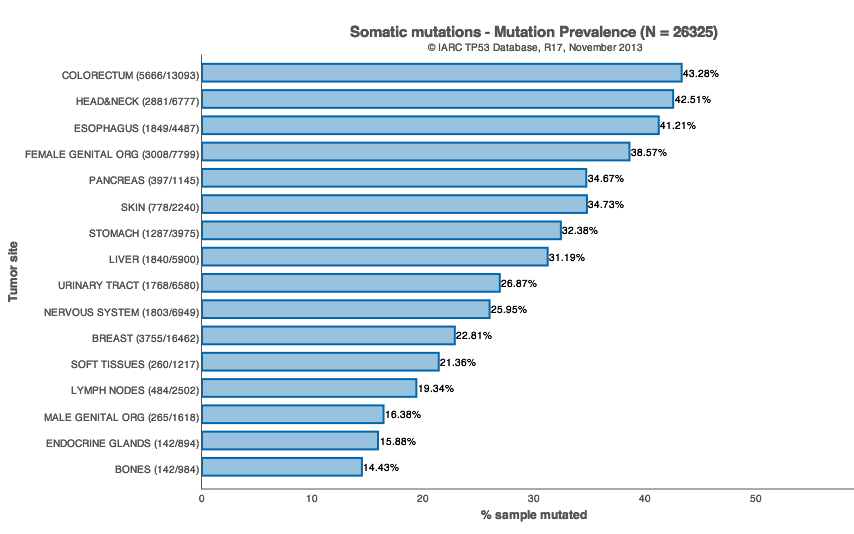For all types of cancer
As early as 1993, the p53 gene was chosen as “molecule of the year” by science magazine Science and still holds its own today as one of the most important cancer-associated genes.
The p53 gene – also known as “guardian of the genome“ – is able to intervene in all mechanisms that regulate the “life and death” of a cell. The p53 gene continues to appear on the covers of influential science journals.
Mutations in the p53 gene are able to interfere with the regulatory capacities of the p53 gene and can, for example, cause uncontrolled cell growth or prohibit cell death. Mutations in the p53 gene are the most frequent genetic changes that have been detected with cancer.
The mutations are to be found among practically all types of cancer with a certain tumour-specific frequency The p53 gene controls most of the signalling paths, which are involved in the regulation of cell division and cell death. Chemotherapy agents and ionising rays (radiation therapy) frequently induce cell death via such signalling paths. A defect in the p53 gene can thus lead to resistance to chemotherapy and radiation.
